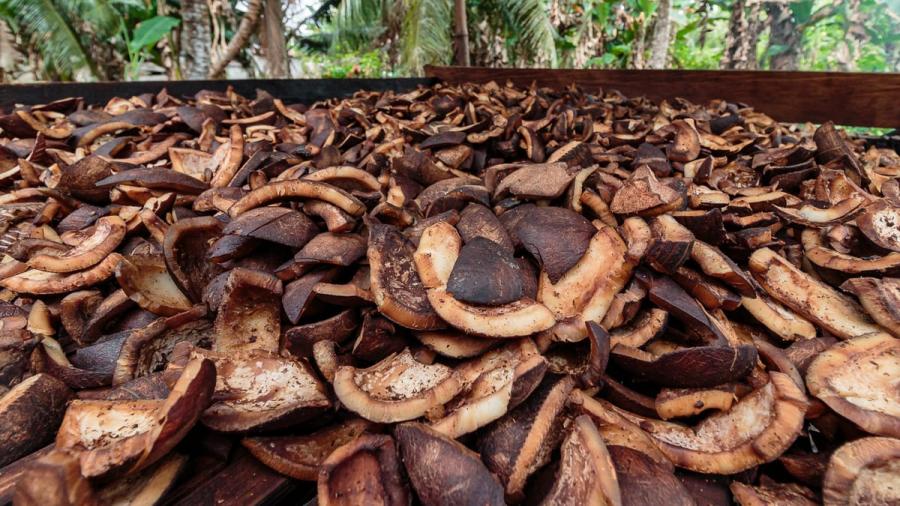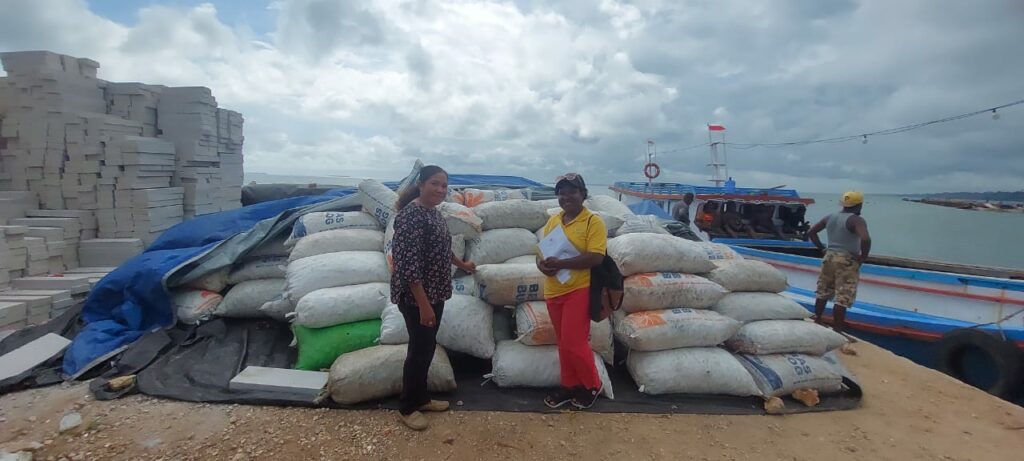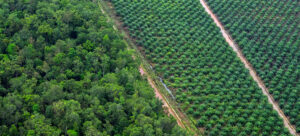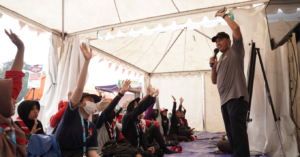
Kaimana, located on the coast of West Papua, has abundant natural resources, one of which is black copra. Black copra is produced from the dried meat of coconuts using traditional methods, namely smoking and sunlight. These methods impart a distinctive flavor and aroma. In recent years, Kaimana’s black copra has started to gain attention as a flagship commodity that not only benefits the industry but also positively impacts the local community.
In Adijaya Village, Kaimana, some residents produce copra, which has become a significant source of income. To encourage economic growth in the community, PT Kobumi, with the support of the EcoNusa Foundation, purchases their copra to be sent to national markets. In September 2024, the community produced up to 16 tons of copra. From Adijaya Village, the commodity is transported by boat to Kaimana City and then shipped in containers to Surabaya.

Benefits of Black Copra for Industry
Black copra is utilized in various industries, both nationally and globally. Here are some benefits of black copra:
- Food Industry: Black copra is often used as a raw material in making snacks, cakes, and other coconut-based products. Its distinctive taste makes it an appealing addition to various products.
- Coconut Oil Industry: Black copra is the primary source for extracting coconut oil. This oil is widely used in the food, cosmetics, and health industries.
- Cosmetics and Health Industry: Coconut oil from black copra is commonly used in beauty and skincare products due to its healthy fat content and antimicrobial properties.
- Soap and Detergent Industry: Black copra is also an important raw material in the production of soaps and detergents because of its emollient properties and good foaming ability.
Training for White Copra Development
EcoNusa has also provided training for the development of white copra since early 2023. White copra is produced from coconuts dried using a solar dryer dome and sulfur.
Using a solar dryer makes the drying process faster compared to traditional smoking or sun drying. The moisture content of copra dried with a solar dryer is lower, and its color is whiter and cleaner. This method also prevents copra from being contaminated by dirt, mold, and other harmful substances. Sulfur is used to prevent mold and enhance copra quality. These factors contribute to higher market prices for white copra compared to black copra.
In the industry, white copra is typically used for producing cooking oil, margarine, cosmetics, soaps, moisturizers, perfumes, chocolate mixtures, ice cream, pharmaceuticals, and other industrial applications.
In September 2023, a solar dryer made from a wooden frame and UV plastic cover was successfully installed. Shortly after the dryer was set up, local women and men gathered to practice making white copra, starting from peeling the coconuts, splitting them, washing, arranging them on the drying racks, and burning sulfur. This drying process must be perfect; otherwise, the copra can be susceptible to microbial contamination. On other days, the community practiced storing the dried copra. Proper storage is crucial, as poor storage can lead to spoilage and reduced quality.
Both white and black copra not only hold significant potential in the industrial market but also contribute positively to the welfare of the local community. With appropriate support and development, this commodity can become one of the pillars of a sustainable local economy. Moving forward, it is essential to maintain the quality and sustainability of black copra production so that its benefits can be felt by future generations.




